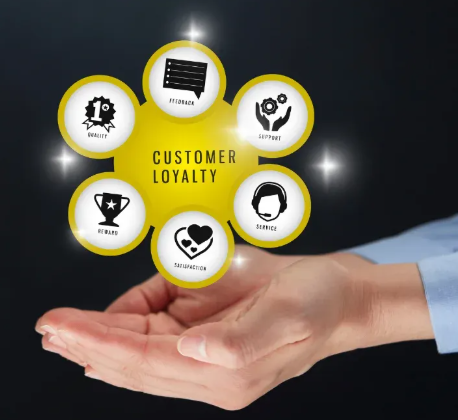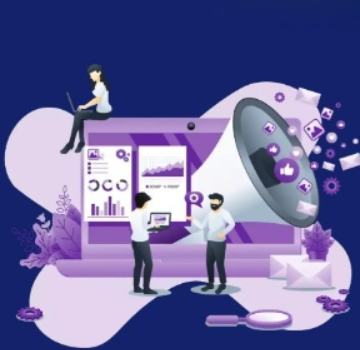
In the world of modern marketing, personalization is key. AI technologies enable businesses to craft tailored experiences that engage customers in meaningful ways. Imagine a marketing strategy that doesn’t just push generic messages but creates unique interactions, anticipates customer needs, and evolves based on data-driven insights. AI is making that a reality. In this blog, we will explore how AI-powered tools are revolutionizing digital marketing and offering businesses smarter ways to connect with their audience.
What Are Digital Marketing Tools?
Digital marketing tools are essential for modern marketing strategies. They help businesses manage, track, and optimize campaigns across various online platforms. These tools help marketers understand customer behaviors, track performance, and execute campaigns more efficiently. Common types of digital marketing tools include:
- Analytics Tools: Platforms like Google Analytics provide insights into website traffic and user behavior, helping marketers make data-driven decisions.
- SEO Tools: Tools like SEMrush and Moz assist in optimizing website content to improve search engine rankings.
- Email Marketing Platforms: Tools like Mailchimp help businesses create, send, and analyze email campaigns.
- Social Media Management Tools: Hootsuite and Buffer allow marketers to schedule posts, track engagement, and monitor brand sentiment.
- CRM Systems: CRM platforms like Salesforce manage customer relationships and integrate with other marketing tools.
These tools are fundamental to modern marketing, but AI technologies are pushing them to new heights, offering even more advanced capabilities.
1. Machine Learning (ML)
Machine learning is like teaching a computer to learn from data. By analyzing large datasets, ML models can identify patterns and make predictions, enabling businesses to make smarter decisions. For example, a company can use ML to predict customer preferences and recommend personalized products, enhancing the shopping experience and driving higher conversion rates.
2. Natural Language Processing (NLP)
NLP enables computers to understand and generate human language. This AI technology helps businesses interact with customers in a more natural way. For example, chatbots powered by NLP can engage in real-time conversations, answering queries and providing personalized assistance. NLP is also used for sentiment analysis, helping businesses understand customer feelings and tailor their marketing strategies accordingly.
3. Computer Vision
Computer vision allows machines to interpret and understand visual data. For marketing, this means using image and video analysis to better engage with customers. For example, AI can tag products in user-uploaded photos, enabling easier shopping experiences and enhancing customer interactions.
4. Predictive Analytics
Predictive analytics uses historical data to forecast future trends. By understanding patterns in customer behavior, businesses can anticipate what products customers may want next or when they’re most likely to purchase. This allows for proactive marketing strategies, personalized offers, and inventory management that ensures products are always available when needed.
5. Marketing Automation
Marketing automation tools powered by AI can streamline repetitive tasks like sending emails, scheduling posts, and tracking customer interactions. These tools can automate responses based on customer behaviors, ensuring that each interaction feels personal and timely. By automating routine tasks, businesses save time and increase efficiency while delivering targeted marketing messages.
6. Personalization Engines
Personalization engines analyze customer data to offer tailored experiences. These AI tools use past purchase history, browsing behavior, and other data points to recommend products or services that align with individual preferences. This helps businesses create a shopping experience that feels customized for each customer, which increases satisfaction and loyalty.
7. Chatbots and Virtual Assistants
Chatbots powered by AI are revolutionizing customer service by providing instant, round-the-clock assistance. These tools can respond to customer inquiries, guide users through product options, and even process transactions. Virtual assistants like Siri and Alexa also use AI to help customers find information or make purchases, making the shopping process more interactive and efficient.
8. Content Generation
AI-powered content generation tools assist businesses in creating articles, blog posts, and social media content quickly. These tools analyze keywords, audience preferences, and industry trends to generate relevant content. AI can also assist in refining content for better engagement, ensuring that each piece aligns with the brand’s voice and audience interests.
9. Dynamic Pricing
AI-powered dynamic pricing tools automatically adjust prices based on real-time factors such as customer demand, competitor pricing, and market conditions. This ensures that businesses stay competitive while optimizing revenue. Dynamic pricing can also enhance customer satisfaction by offering personalized discounts or deals based on individual behavior and purchasing history.
10. Sentiment Analysis
Sentiment analysis tools use AI to analyze text data from social media, reviews, and customer feedback to determine the overall mood or sentiment. By understanding whether customers feel positive or negative about a brand, businesses can adjust their marketing strategies accordingly. This real-time insight helps businesses react quickly to customer concerns or capitalize on positive feedback.
Conclusion
AI technologies are revolutionizing digital marketing, making it more personalized, efficient, and responsive. From predicting customer preferences to automating marketing tasks, these tools enable businesses to connect with their audience in deeper and more meaningful ways. By leveraging AI, businesses can enhance customer satisfaction, improve loyalty, and ultimately drive growth.












